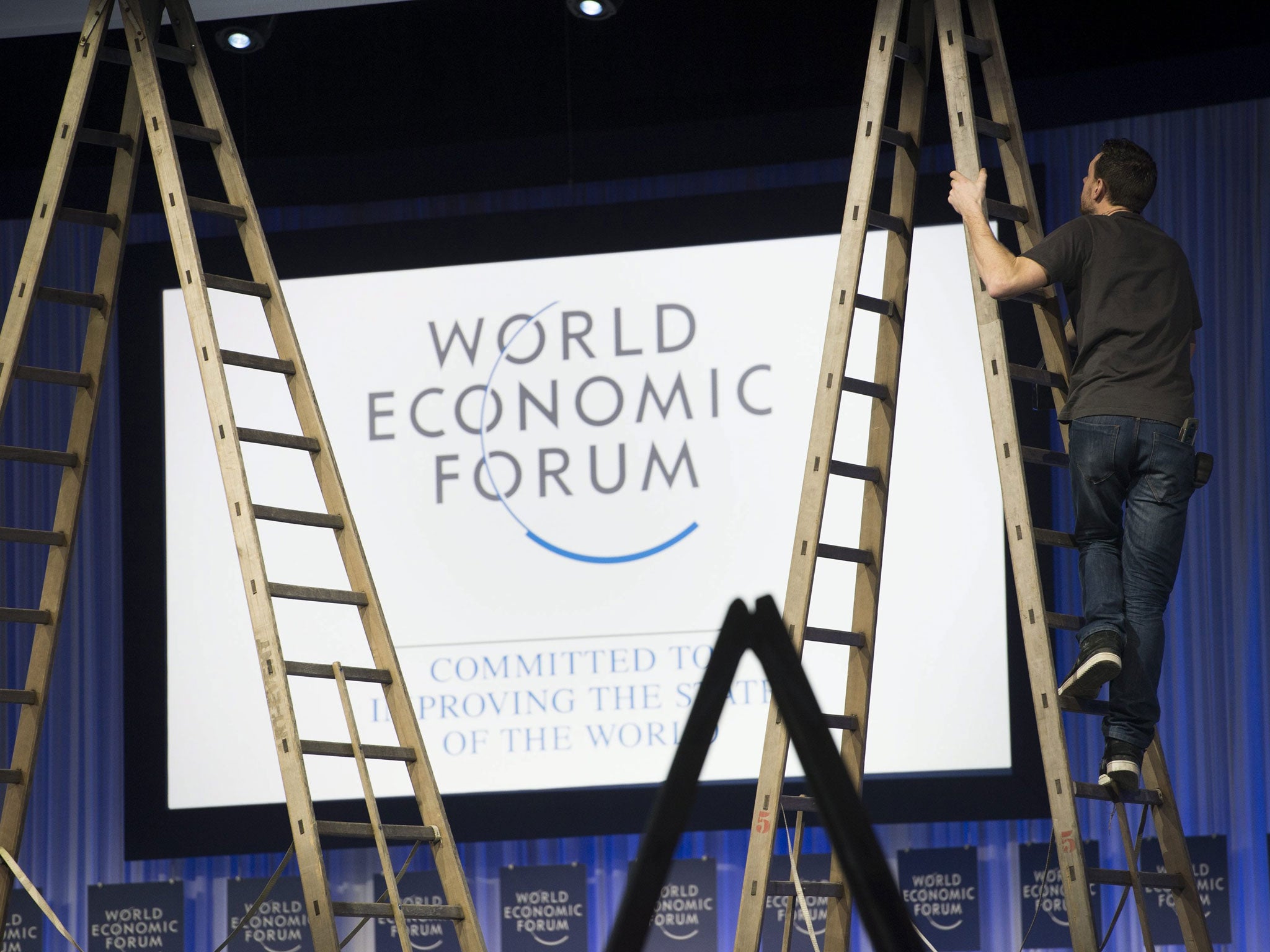The global economy may be recovering, but the questions posed at Davos are as challenging as ever
Wages will not grow much, and the funds for quality healthcare and schooling will not be there, unless Britain is competitive in world markets

Your support helps us to tell the story
From reproductive rights to climate change to Big Tech, The Independent is on the ground when the story is developing. Whether it's investigating the financials of Elon Musk's pro-Trump PAC or producing our latest documentary, 'The A Word', which shines a light on the American women fighting for reproductive rights, we know how important it is to parse out the facts from the messaging.
At such a critical moment in US history, we need reporters on the ground. Your donation allows us to keep sending journalists to speak to both sides of the story.
The Independent is trusted by Americans across the entire political spectrum. And unlike many other quality news outlets, we choose not to lock Americans out of our reporting and analysis with paywalls. We believe quality journalism should be available to everyone, paid for by those who can afford it.
Your support makes all the difference.A few weeks ago, The Onion, the satirical US website, ran the headline: “Recession-Plagued Nation Demands New Bubble To Invest In.” Like all good parodies, it contained enough truth to be funny. Indeed, the notion is one that the world’s policymakers, as they gather in Davos for their annual meeting this week, would do well to ponder.
After all, this is very much the pattern since the banking crash. Trillions of dollars have been pumped into the listless economies of North America, Europe and Japan to support asset prices – property, shares, bonds, commodities – and prevent the great recession turning into another great depression. In normal times, such action would have generated bubble upon bubble. So extreme were the circumstances, however, that it barely averted a global deflation.
The question for Davos is what next? And the answer is most certainly not to pump in still more trillions to try to reinflate bubbles of imaginary paper wealth. Having done all they can to prevent a catastrophic collapse in demand and liquidity, some of the more fundamental economic factors undermining growth and living standards in the West have not received quite the same attention from policymakers – what in happier times we called the “supply side”.
Some brains are already turning their attention to this. One Davos regular, former US Treasury Secretary and President of Harvard Larry Summers, has already raised the idea of Western “secular stagnation”. In its way, it is nothing new. One of the persistent themes at Davos, and anywhere else where intelligent discussion of economics has taken place, is the historic shift in wealth and power from the old Western powers, and towards the young, developing economies, especially in Asia. It is analogous to the rise of Britain in the 19th century, and the US between the two world wars.
Now, the effects of this new shift in the balance of economic power are becoming tangible. Much of the discussion in the UK, for example, about living standards and the quality of public services is against such a backdrop. Wages will not grow much, and the funds for quality healthcare and schooling will not be there, unless Britain is competitive in world markets. Similarly, the greatest global economic imbalance of all – the US-China trade balance – is, at its simplest, explained by a relative decline in US competitiveness and exporting prowess.
If Western politicians refuse to push through economic reforms – or, rather, voters refuse to face them – then strikes, riots and rows about “fair shares” and resentment towards elites will be the dominant political forces as a cake that is static or shrinking must be divided.
Powerful sectional interests, archetypally unionised public sector workforces, may do relatively well out of this; but those without a voice or much industrial muscle, usually the poorest, will do badly. In such circumstances, blaming immigrants and “unfair” trade usually figures as well, and political parties of the maverick right tend to prosper, while globalisation gets a bad name. Sound familiar? No one should expect the powerful folk at Davos to have all the answers, but at the very least it is their responsibility not to duck the question.
Join our commenting forum
Join thought-provoking conversations, follow other Independent readers and see their replies
Comments